Iranian Rapper Beaten, Kidnapped, Two Weeks After Prison Release
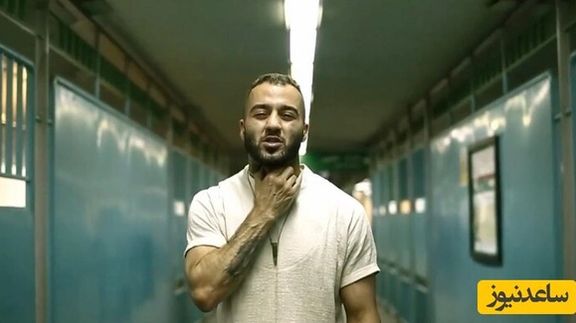
Toomaj Salehi, the Iranian rapper who was recently released from prison, has been rearrested, according to his page on X.

Toomaj Salehi, the Iranian rapper who was recently released from prison, has been rearrested, according to his page on X.
“The regime’s armed plainclothes agents abducted and detained” Salehi in the northern city of Babol in Mazandaran province, an update read, the page run by an appointed manager.
The 33-year-old rapper has been taken to an undisclosed location in the city.
According to the report, the regime agents refused to show any warrant and arrested Salehi without identifying themselves.
“He was beaten severely by plainclothes agents – which included beating Toomaj with the butt of Kalashnikov rifles,” the post said.
It also stressed that “the Islamic Republic bears the responsibility for his life.”
Less than two weeks ago, the popular figure was released from prison after over a year of imprisonment, including 252 days in solitary confinement, upon posting bail.
During his incarceration, he sustained injuries from torture, including severe swelling and bleeding in his eyes, a fractured tooth, and injured fingers.
In July, the rapper dodged a death sentence and was instead sentenced to over six years in prison. He was convicted of offenses related to “corruption on earth,” which includes violations of religious morality.
Salehi was arrested in November amid uprisings against the regime, during which he used his social media platforms to support popular protests.
Throughout his career, he has addressed critical issues such as corruption in the Islamic Republic, workers’ strikes, and the execution and imprisonment of regime opponents through his musical works.

Iran's Shargh newspaper's economic editor, Maryam Shokrani, is set to appear in court in December following her coverage on the death of a teenage girl in the Tehran subway.
Shokrani revealed the legal summons via X, citing allegations of "spreading lies and propaganda against the system” after the story broke of Armita Geravand, 16, dying after being in a violent incident with morality police.
Like Mahsa Amini, the cause of her death while in morality police custody was never revealed by authorities though it is believed she fell into a coma after falling during the clash on the subway.
In a recent Instagram post on November 22, Shokrani expressed her dismay, stating that the case was forwarded to Branch 1058 of the Culture and Media Prosecutor's Office without proper investigation, and she had not been given an opportunity to present her defense.
This marks the second legal case filed against Shokrani in the past few weeks. Initially, she had been summoned to Branch 16 of the Tehran Culture and Media Prosecutor's Office, unaware of the complaint's subject matter.
The two journalists who reported the death of Amini were also imprisoned last month as the regime continues its crackdown on dissident voices.
Iran has arrested at least 79 journalists since the uprising of September last year, according to Reporters Without Borders.

Iran's Interior Minister Ahmad Vahidi has defended the practice of government agents photographing citizens in public spaces, describing it as "natural."
As a response to public outcry, Vahidi compared traffic control cameras, asserting that capturing images of those violating rules is a common and convenient method.
In April, Iran's police announced that new cameras were installed in public places and thoroughfares to identify and penalise unveiled women, another attempt to rein in the increasing number of women defying Iran's compulsory dress code.
Tehran’s prosecutor opened a case against the reformist Etemad newspaper on Sunday after it published an interior ministry document outlining the enforcement of hijab rules. The report provided details about the deployment of hijab enforcers at Tehran's subway stations and cited a directive issued by Vahidi to several government entities, including Tehran Municipality and the Metro Company.
The document, outlining steps for enforcing hijab rules in "government-controlled places," contradicted Vahidi's earlier denial of his ministry's involvement in the deployment of hijab enforcers at subway stations.
A state official responsible for promoting religious social standards, Mohammad-Hossein Taheri-Akerdi, said on Saturday that over 2,850 "revolutionary and jihadi forces" are voluntarily carrying out the religious duty of enforcing hijab.
Vahidi's directive, as disclosed in the document, grants authority to the police, the intelligence organization of the Revolutionary Guards (SAS), and the Ministry of Intelligence to photograph and film women defying hijab rules in public places, including subway stations and metro cars. The collected evidence will be used for prosecution and intimidation, aiming to enforce compliance with hijab regulations.
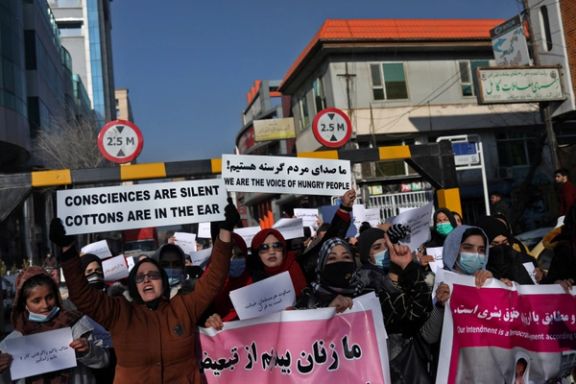
The German education minister says education is essential for the foundations of women's rights in Iran and Afghanistan, calling for international support.
Speaking to Iran International about ways to empower women in Iran and other authoritarian states, Bettina Stark-Watzinger, the Federal Minister of Education and Research and the Deputy Leader of the Free Democratic Party, praised the efforts by Afghan and Iranian women, pointing out that the fight for freedom is fostered by education, which is “the best way to make people independent.”
Speaking on the sidelines of an event organized by the Axel Springer Freedom Foundation, an NGO that supports human rights activists through financial support, Stark-Watzinger told Iran International’s Ali Samadi that the first steps for supporting Iranian women would be supporting dissident figures and make the world see “how human rights and women’s rights are violated.”
“We always have to speak up against” such violations, she added, alongside Iranian opposition figure Masih Alinejad and several other activists and officials.
Addressing Stark-Watzinger, Alinejad voiced appreciation for the German government, which she said has promised to back Iranian and Afghan women in their fight for freedom.
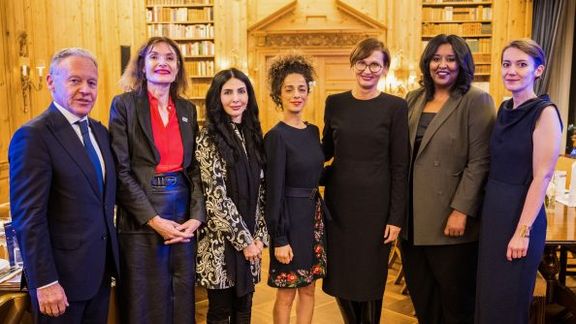
On the anniversary of the death of Mahsa Amini, whose death in morality police custody triggered a nationwide uprising, German Foreign Minister Annalena Baerbock pledged Berlin's solidarity with the people of Iran.
"Even if the protests have disappeared from the headlines, we will not leave the people of Iran on their own," she said. "We will place the fate of the people in Iran on the agenda in Brussels, New York and Geneva."
"As much as it breaks our hearts, we will be unable to change conditions in Iran from outside, but we will not hold back from giving the people in Iran a voice," Baerbock said at the time. Germany has also backed ongoing EU sanctions on Iran relating not only to its nuclear program but for its brutal suppression of protesters during the Women, Life, Freedom uprising. Baerbock has repeatedly condemned Iranian authorities for human rights violations and is among the most vocal European leaders who speak out against Tehran’s treatment of women and protesters.
Alinejad recognised the support, and said, “We believe that Iranian and Afghan women are fighting against a common enemy: gender apartheid".
During the event, the Axel Springer Freedom Foundation gave its courage award to Afghan women for their fight against the rule of Taliban, which has been intensifying restrictions on women’s education and social presence since it seized power in August 2021 as US-led forces withdrew after 20 years of war.
Referring to the award, Alinejad said that giving awards alone is not enough. “If you do not take practical steps to remove the Islamic Republic and the Taliban, they will eliminate you on German soil,” referring to assassination attempts she has so far evaded from regime security forces on foreign soil.
A UN assessment of the women’s rights situation submitted to the 15-member Security Council in November read, "The basic rights of women and girls, including the right to education and to work, and representation in public and political life – are not only fundamental obligations of a state, but also critical to build state capacity for long-term development and economic growth and peace and security.
"Any formal re-integration of Afghanistan into global institutions and systems will require the participation and leadership of Afghan women.”
Since the Taliban returned to power, most girls have been barred from high school and women from universities. The Taliban have also stopped most Afghan female staff from working at aid agencies, closed beauty salons, barred women from parks and curtailed travel for women in the absence of a male guardian.
In Iran, since last September's uprising, women have been under increasing oppression as they rebel against mandatory hijab. They have been banned from public spaces, education and faced fines and jail terms for shunning the state laws which has seen a nation rise up.
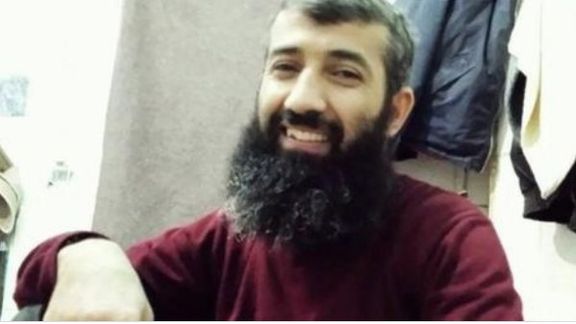
Ayub Karimi, a Sunni Kurd and a religious prisoner, was executed early on Wednesday in Karaj's Ghezel Hesar Prison.
Karimi, who had been sentenced to death approximately 14 years ago, was transferred to solitary confinement a week before the execution. Amnesty International had issued warnings in recent days, highlighting the imminent danger of Karimi's execution and urging authorities to cancel the sentence. Despite the pleas, Karimi, along with six other prisoners whose identities remain undisclosed, was hanged Wednesday morning.
Notably, Karimi was denied a final meeting with his family before his execution, mirroring the fate of his co-defendant, Qasem Abasteh, who was executed on November 5.
The human rights organization Hengaw has identified five more religious prisoners facing imminent execution: Davoud Abdollahi, Farhad Salimi, Anwar Khezri, Khosrow Besharat, and Kamran Sheykha. All of them were arrested in 2009 and held in the intelligence ministry’s detention center in Urmia.
In 2015, they were tried and sentenced to death, a verdict confirmed by the Supreme Court in 2020 after prolonged legal battles. Despite a plea for retrial in September 2020, the Supreme Court rejected their request.
The charges against the prisoners include "War against God," "corruption on earth," "support for Salafi groups," and an alleged "murder". However, the accused individuals consistently denied any involvement in the allegations in letters published by human rights organizations.
The situation for minority rights in Iran remains precarious. In July alone, the Kurdistan Human Rights Network reported that Iranian security forces detained at least 54 Kurdish activists and citizens in the western provinces of Iran.
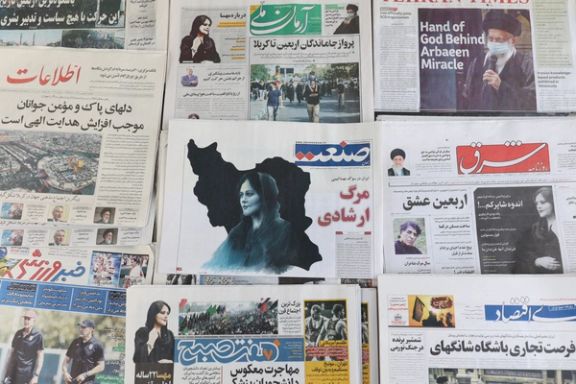
Iranian prosecutors opened a case against the reformist Etemad newspaper on Sunday for publishing an interior ministry document about enforcing hijab rules.
In a report about the deployment of hijab enforcers at Tehran’s subway stations, the newspaper referred to a controversial directive communicated by the interior minister, Ahmad Vahidi, to government bodies and organs, including Tehran Municipality and the Metro Company.
“Months ago, on May 30, the interior minister issued an illegal order [to government bodies] – classified as secret in violation of the law -- which affected thousands. They are dismayed now because Etemad newspaper has published only one page of that illegal directive,” prominent law expert Mohsen Borhani tweeted Sunday.
The document which lists the steps to be taken to enforce hijab rules in “government-controlled places”, proves that the Vahidi’s claim that his ministry had nothing to do with deployment of hijab enforcers at subway stations was a lie.
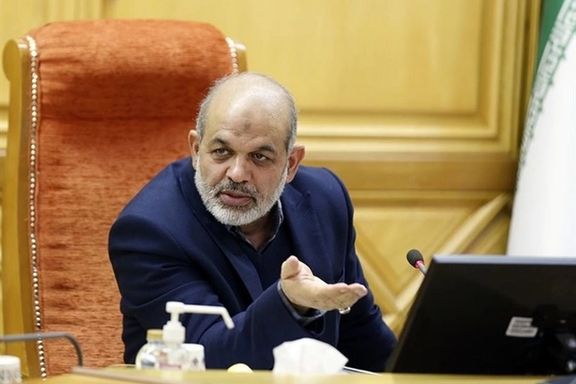
A state official responsible for promoting religious social standards, Mohammad-Hossein Taheri-Akerdi, claimed on Saturday that there are over 2850 “revolutionary and jihadi forces” who carry out the religious duty of enforcing hijab “voluntarily”.
Vahidi’s directive authorizes the police, intelligence organization of the Revolutionary Guards (SAS), and the ministry of intelligence to photograph and film women who do not follow hijab rules in public, including at subway stations and inside metro cars. The evidence will be used for prosecution and intimidation of women to wear the hijab.
Only hours after the publication, Etemad newspaper was indicted by the Office of Prosecutor of Tehran, but the interior ministry has made no comments about the leaked directive.
“Tehran Prosecutor’s Office indicted Etemad newspaper yesterday, not for circulating lies, but for publishing a document that implied the falsehood of the interior minister and Tehran mayor’s statements over the past week,” an article on the frontpage of Tose’e Irani, another opposition newspaper said Monday.
Vahidi and Tehran Mayor Alireza Zakani denied the involvement of their organizations in the deployment of hijab enforcers at Tehran Subway stations and tunnels.
The denials came after a photo went viral on social media that showed women in black-veil uniforms forming a “tunnel” in subway corridors to enforce hijab. These have come to be referred to as “horror tunnels” across the media and social media. Cameramen who take footage of the female passengers accompany the hijab enforcement teams.
Not only officials have denied any involvement in organizing the hijab teams, but they have claimed these are “spontaneous citizens’ groups” enforcing hijab as a religious duty.
Experts say the contents of the directive do not warrant it to be classified and the indictment of Etemad newspaper, therefore, lacks any legal foundations.
Citing articles 4 and 11 of the Information and Free Access to Information Act of 2015, prominent journalist and former politician Abbas Abdi argued in a commentary in Etemad newspaper Monday that decisions that involve public rights or duties cannot be classified.
Article 4 of the said act, Abdi added, stipulates that prosecution of a crime such as publication of a classified document requires the ministry or organization to which the document belonged to initiate a legal complaint, but the interior ministry has not sued Etemad.
“The public prosecutor is a defender of the public’s rights, not the government’s [position],” Milad Alavi, a law student and reporter of the reformist Shargh Daily, tweeted while underlining that it is the interior minister who must be prosecuted for breaking the law of freedom of access to information.
Abdi and others have also challenged the interior ministry and Tehran municipality’s claim that hijab enforcers in uniform and cameramen are “citizens’ groups” because in Iran official permits are required for any public activity including forming citizens’ groups and NGOs.